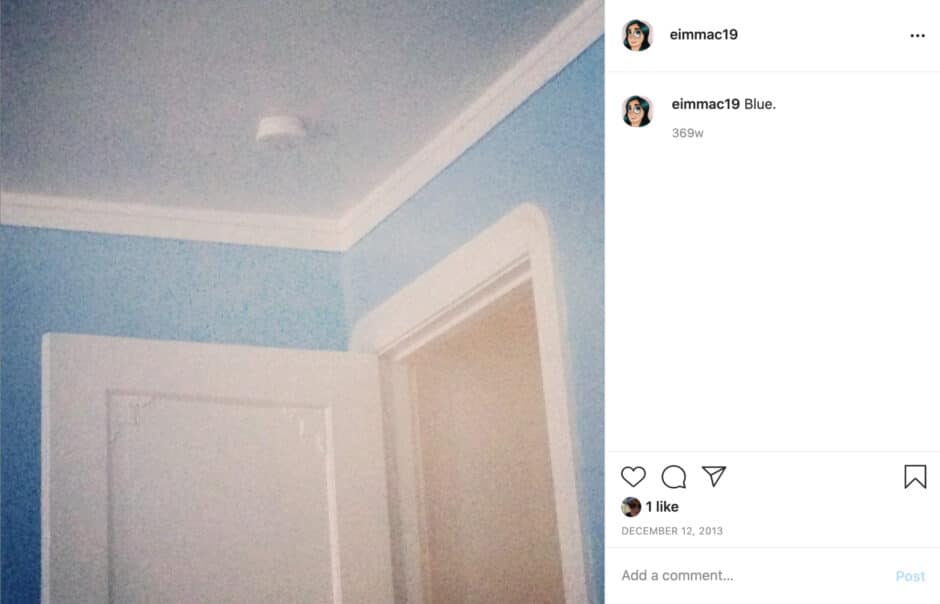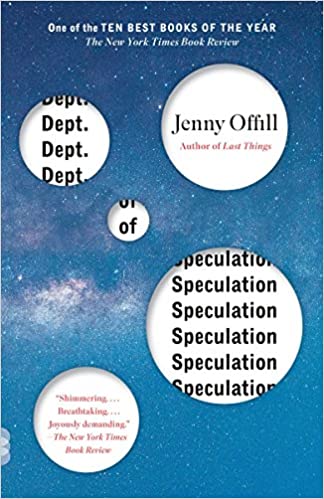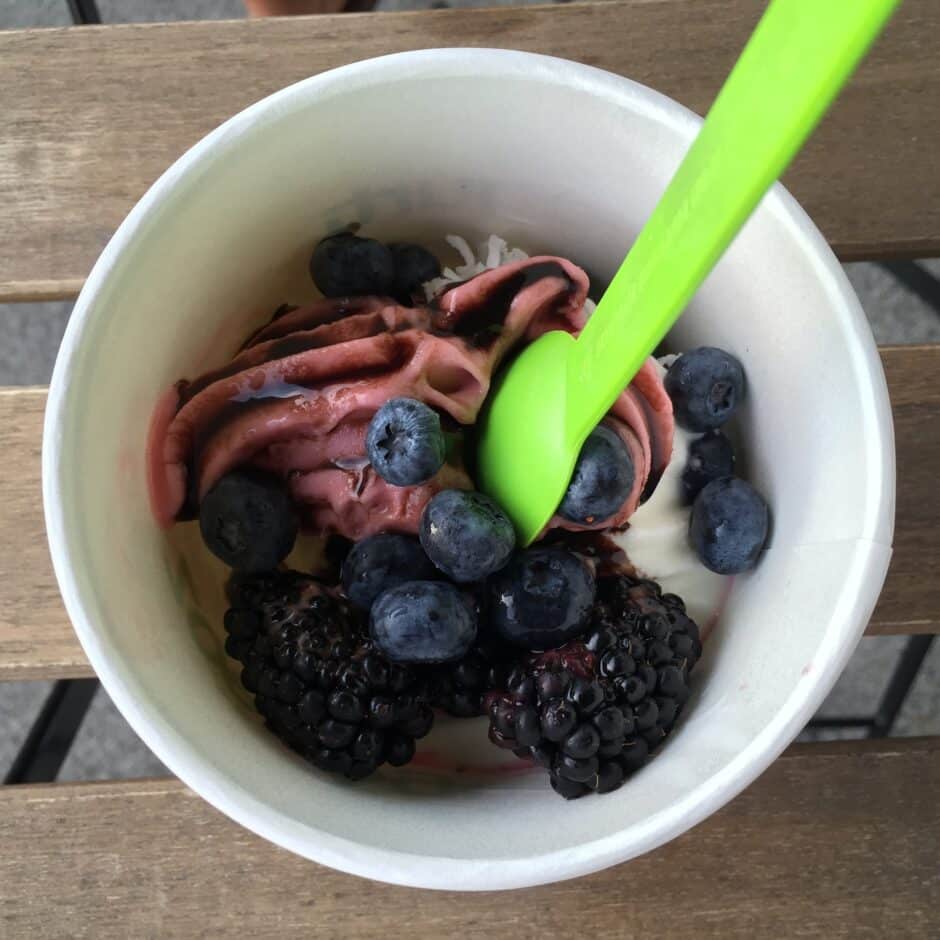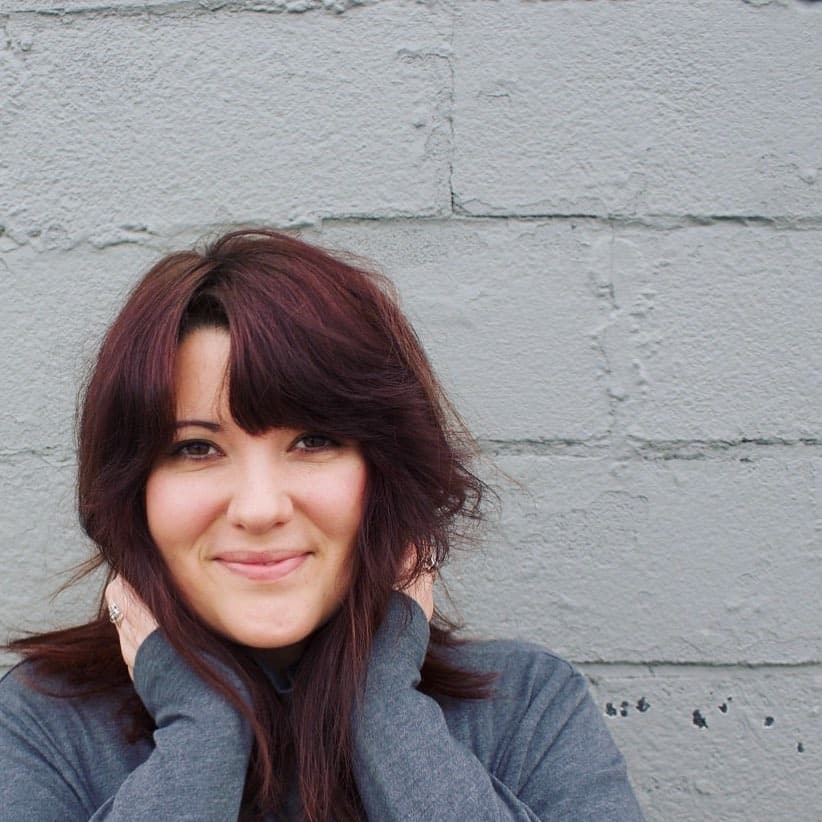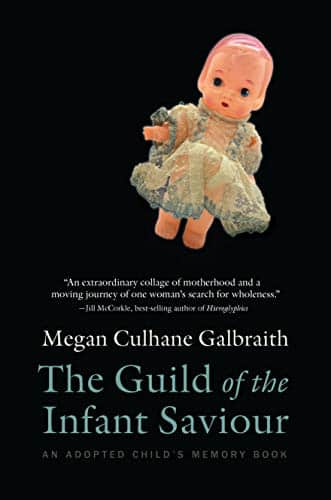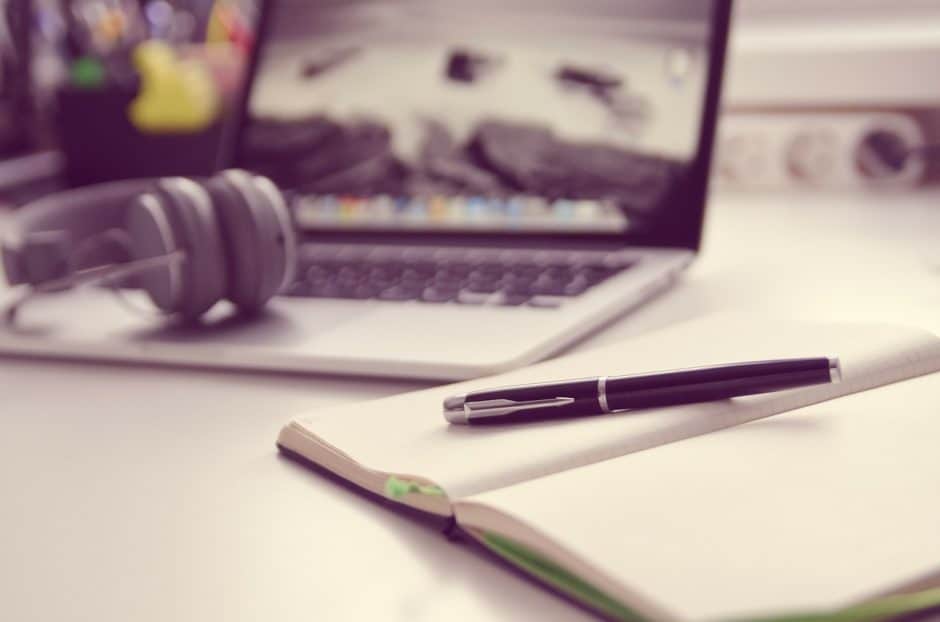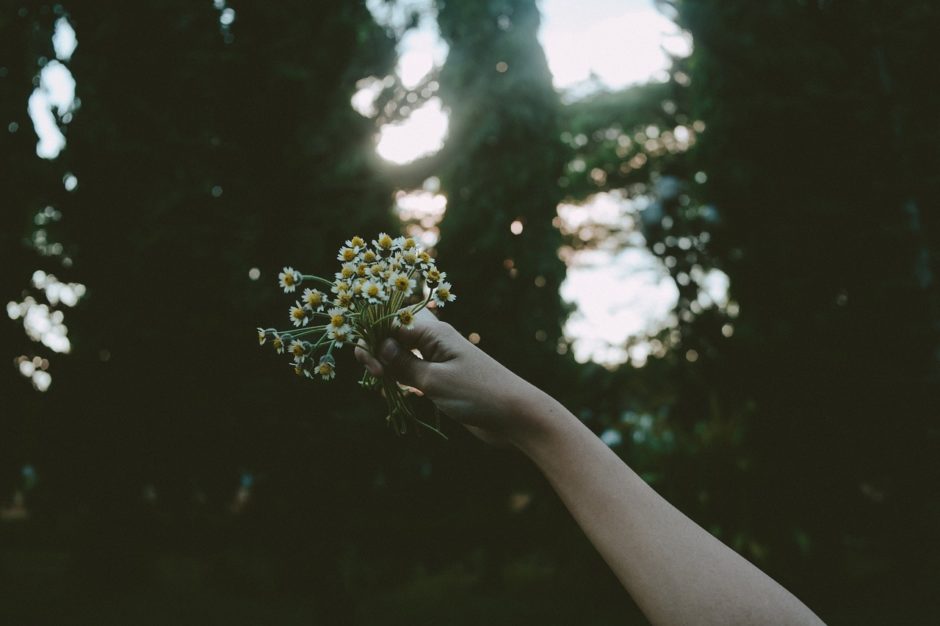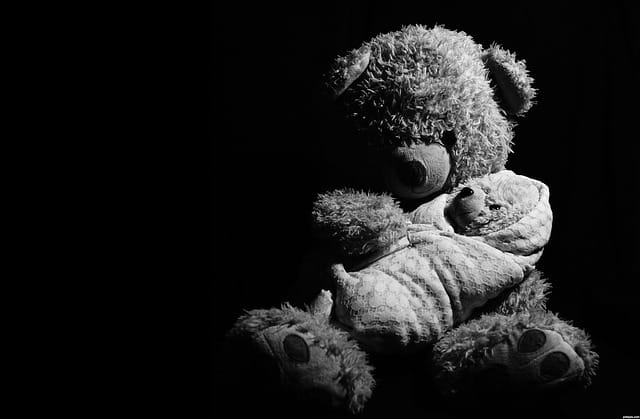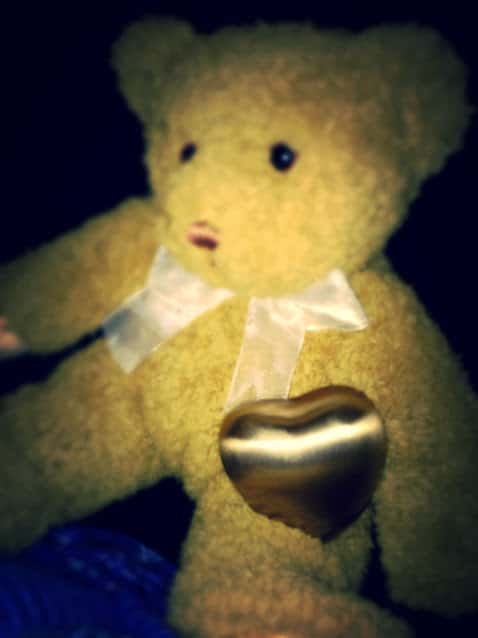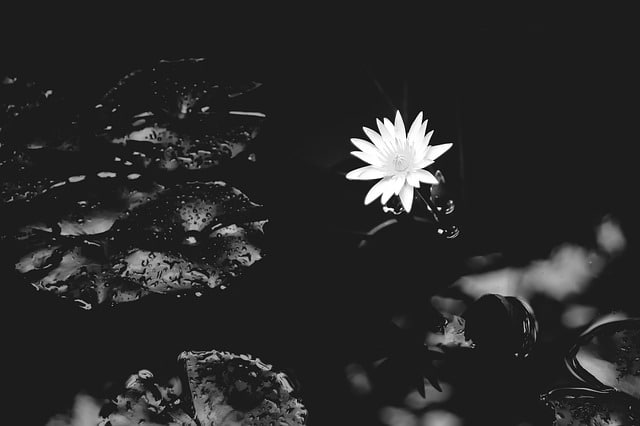CW: This essay discusses miscarriage.
by Cammie Clark
“Yours is the light by which my spirit’s born;
you are my sun, my moon and all my stars.”
~ e.e. cummings
This is a letter to the tile floor in my bathroom––hexagonal and white, grouted a dingy grey. I sit on the toilet, connecting imaginary shapes in the inch-sized pieces beneath my feet. Maybe the tiles are porcelain––they’re always cold––but they’re original, laid into the home about 100 years ago. I live here with my husband and daughter; we don’t own it, but we dream about it. I’m careful of the tiles in here and also of the hardwood floors throughout the rest of the house. I wipe things up immediately––splashes of water, spilled coffee, bodily fluids.
Or maybe this is a letter to the sky blue painted walls of our bedroom, a dreamy color I did not pick but love to get lost in. 375 weeks ago I posted my first post on Instagram––it was a view of these walls from where I lay in bed. I simply captioned it, “Blue”. Because it was and I was, and I laid there for a long time, but this isn’t a letter to the color blue.
I don’t like to turn onto my left side while I sleep––mostly it’s uncomfortable, but I’d also have to contend with my husband’s snoring much too close for my liking as he sleeps on the left side of the bed. Sometimes in the morning, after he is in the shower and the sun has come up and brightened the blue walls of our bedroom, I’ll roll over to my left side and reach my hand out to touch the spot where he was laying––warm still. Just a glance past his pillow hangs a framed graphic print of the stars in the sky, as they appeared on the night of December 5, 2013. This is definitely a letter to that framed print. At the bottom, a quote from e.e. cummings.
This is a letter to my anxiety, and to the morning of Dec. 6, 2013, when I think that something is not quite right. It was still early––too early, except what I mean is there was no sun up yet, no blue walls, no shower or warm spot. I propped myself up––it was too early for me too, at 17 weeks pregnant, to feel not quite right. What was moving? No, what was the movement that was happening inside me? I walked halfway down our short hall and quickly returned, each step agonizing. This is a letter to the edge of the doorway, to the edge of our bed, to the edge of my sanity.
My husband, annoyed by the hall light and by my indecision to go to the bathroom or not, “What’s up? It’s 5:30 in the morning?” he had groaned. “I don’t know––I don’t know, something doesn’t feel right. Just let me go pee.” For a moment, I felt fine and I stood fine, but each step brought a familiar radiating pain that reached around my back and clamped down––hard––into my pelvis. The pain was coming in waves and I was like a wave, ebbing back and forth in the hallway, attempting to drift into my bathroom, unsure if this was all just nothing. I sat on the toilet taking deep breaths–––I counted tiles, then traced shapes like geometric hearts and geometric flowers with their outlines.
This is a letter to my entire bathroom, to its walls and pedestal sink––a place that held me. When something warm and small slid out of me I breathed a sigh of relief when it wasn’t red and for the briefest of moments, everything paused––there was no pain, no early morning nature sounds outside the window, just a magnitude of nothing pressing deep into my ears––I didn’t even move or exhale. I didn’t exhale because I couldn’t, not with the sudden terror and racing heart beat when I realized that the small, yellowish sack that slid out of me was the mucus plug from my uterus.
This is a letter of inevitability.
But I think this letter is also to my body, how it did what a woman’s body does, and with my uterus clamped down into contraction after contraction, I steadied myself over the toilet. I glanced with a fury toward the door, beautiful and ornate as it was but pissed off by the antique door knobs with locks that no longer functioned. I tried not to alarm my husband in that moment because this is also a letter to his childhood trauma and to his sobriety and how if he opened that fucking door I knew all of this would break him, my sweet husband.
I write this letter on behalf of myself, as the woman in the moment, trying not to scream in agony too loud, trying to control the level of terror and disconnect that was taking place in my mind, so much so that I placed both my hands over my mouth, one atop the other, only to release them to say through clenched teeth and sobs: “Don’t you open that door, Timothy! Don’t you open it!”
And him pleading from the other side, “Just tell me what to do––I don’t know––please.“
There was no such thing as time in that moment. So this is a letter to lost time––how my body got it wrong, or maybe got it right, and what I believe about it now is wrong. The physical agony suddenly stopped, but still, I didn’t exhale––because I couldn’t, that racing heartbeat came back as I peered down and saw our baby, still connected to me, swinging upside down from between my legs as I half stood, half propped myself up on the edge of our sink. So much time––lost.
Where do you send a letter like this? To god? Do I write it and then burn into the sky? Or should I consume it––like the way it keeps consuming me?
This is a letter to trauma, to my disjointed self. There is a version of me that only exists in this moment––and she never comes forward with me in time, she’s stuck back there in that bathroom with the beautiful tile. This house, in my mind, comes to me like a diorama, the roof removed and I peer in over the edge. Inside, I am a carefully felted doll––fibers poked and compressed together by pins––save for one long stray thread that’s dangling away from me, unravelling.
“Timothy, get me a plastic bag, hand it to me through the door please.”
“Should I call 911?”
“No, there’s no time. We need to drive ourselves––now.” This is a letter to my curious mind that read book after book about pregnancy risks and knew that an undetached placenta––a placenta accreta––could become a life or death situation very quickly. This is a letter to my grade school daughter, who would be driving by our house with her dad that morning, on her way to school, and did not need to see an ambulance parked out front. This is a letter to my hands and the careful way they cradled our baby like a broken bird, first in the plastic and then a bath towel, still attached to me between my legs. I tucked the baby bird infant against my pelvis and pulled my elastic pajama pants way over the top and waddled out to the car.
“Drive.”
This is a letter to the gurney that was rushed to me in a panic as I stumbled in through the emergency room doors, doubled over and mumbling, and to the nurse’s horrified face when I said “My baby fell out of me” in wretched sobs, my body folding around itself. And that diorama of my home exploding into the deepest recesses of my mind as I imagined splintered pieces of tile and wood and plaster piercing memories of birthdays and holidays past, every precious moment torn asunder.
I thought this letter might also be for the skeptical nurse who questioned the plastic bag, demanding to know what happened–––as if I had done something to our baby–––but there is no letter that comes to mind, only broken pieces of a diorama that no longer resembles a home, and I think maybe if the nurse had just taken my hand, she would have felt the little bits of plaster and tile and wood and understood why I could not fathom my husband wandering out to his car while I lay in a hospital bed and having to wipe the contents of my womb off the passenger seat of our car. Surely even she would see that this is a letter to an almost father.
Perhaps more than anything, this is a letter for my first home: my mother–––I really need my mother; all children do.
But now, this is only a letter to memory. Every now and then, I’ll lay down on that cold, porcelain tile, all of its geometry leaving mathematical indentations on my skin––my body attaching to home like we are being felted together. It’s me looking back up at me, from the bottom of the diorama––like our baby became this place, and this place forever holds me. It is a kindness I’ve imagined for myself.
This is a letter to 375 weeks, to constellations and going home.
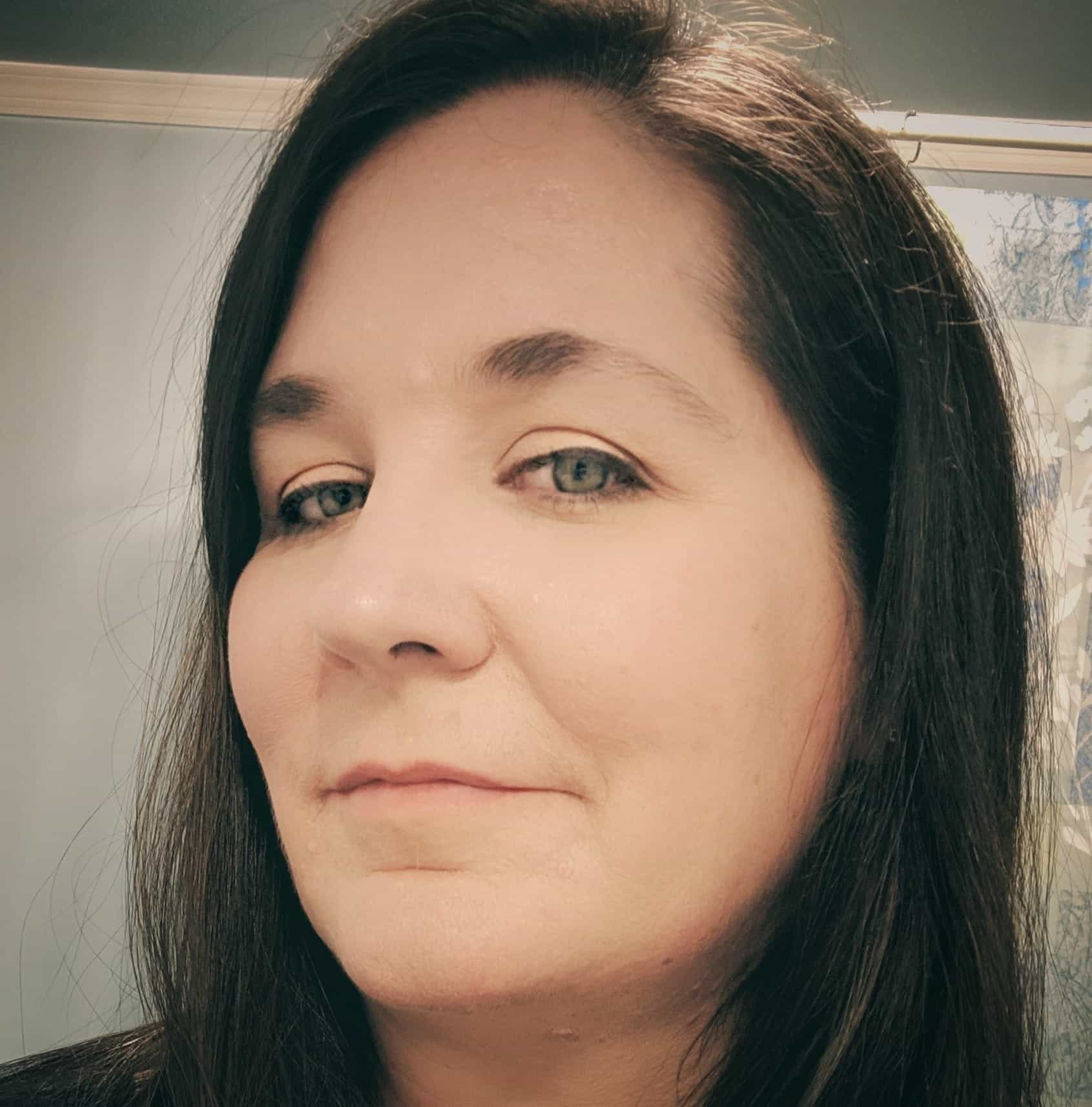
Cammie Clark is a Creative Nonfiction student at UCLA, currently workshopping her memoir about being raised by disabled parents while living off the grid in Yosemite National Park. Clark’s work has been published online at The Rumpus, Salon, The Woolfer and Medium, as well as in print for several Bay Area newspapers. She is a professional member of PEN America and is a part of their Prison Writing Mentor Program. She lives with her husband in Half Moon Bay. To see a sampling of her published work, go to to cammieclark.contently.com.
~~~~~~~~~~~~~~~~~~~~~~~~~~~
Although each of Jenny Offill’s books is great, this is the one we come back to, both to reread and to gift. Funny and thoughtful and true, this little gem moves through the feelings of a betrayed woman in a series of observations. The writing is beautiful, and the structure is intelligent and moving, and well worth a read.
Order the book from Amazon or Bookshop.org
~~~~~~~~~~~~~~~~~~~~~~~~~~~
Anti-racist resources, because silence is not an option
~~~~~~~~~~~~~~~~~~~~~~~~~~~

